The end of the second tour of Life, Clay and Everything saw Keith and Marj with a day in Cornwall, and a chance to visit The Leach Pottery.
This St Ives workshop was founded in 1920 by Bernard Leach and Shoji Hamada, and reopened in its current museum form in 2008. Leach originally studied etching at The Slade, before going to Japan to study that art-form. He was invited to a raku pottery party, became hooked on pottery, and returned to the UK to join the established artist community in St Ives.
Leach and his wife Muriel took over what had originally been a tin-ore shed with a cottage attached, and built the first Japanese-style kiln in the UK. It didn’t work well, so in 1922 they brought Tsuronosuke Matsubayashi to St Ives, and he built a three-chambered ‘climbing kiln’, a wood-fired kiln with no separation between fire and pottery.
Over time, Leach came to see pottery as a combination of art, philosophy, design and craft, and he blended his Japanese learning with English craft traditions. His work and his writing were massively influential, and many potters, including Michael Cardew and Katherine Pleydell-Bouverie, trained with him. The UK studio pottery movement from the 1970s-1980s was built around his students and his ideas, and potters from across the world came to learn with him before taking his philosophy home.
“I hadn’t visited The Leach Pottery since the ‘80s so first and foremost it was good to see it still standing,” says Keith, “Not only that but it has now become a centre for promoting and training potters from around the country. The museum is a telling insight into how Bernard Leach was influenced by the Japanese culture of ceramics and married that with his English aesthetic.”
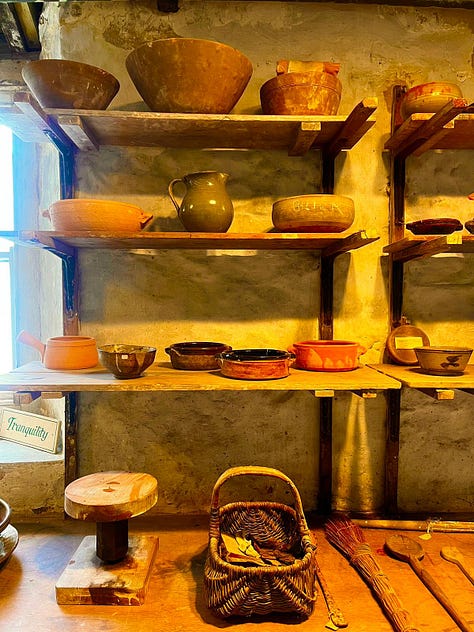
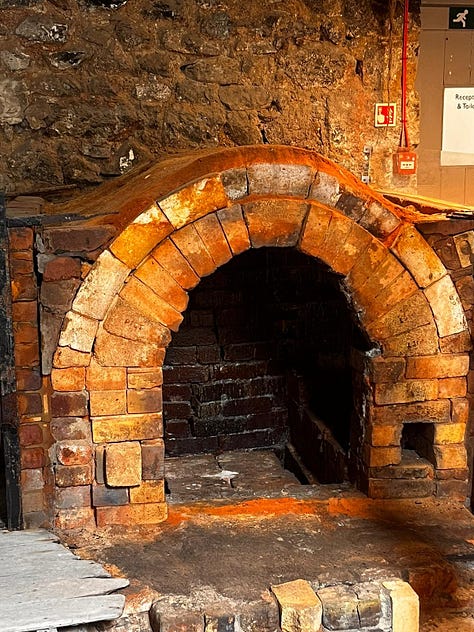
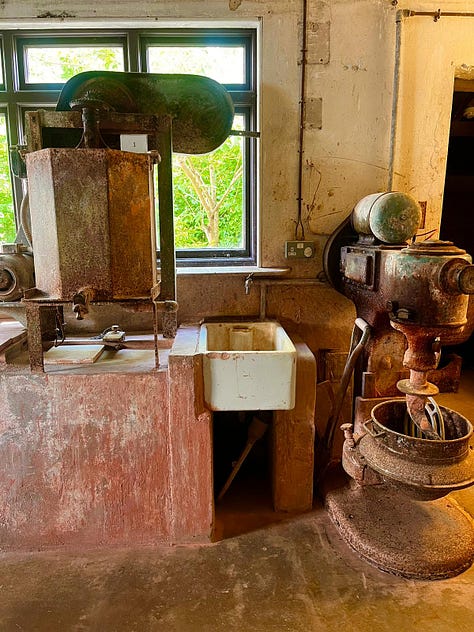
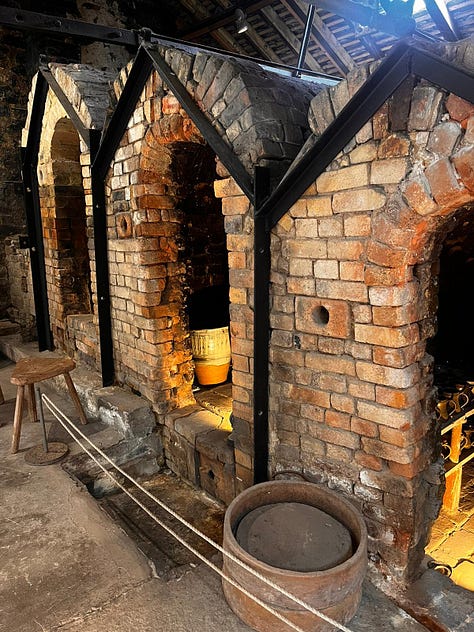
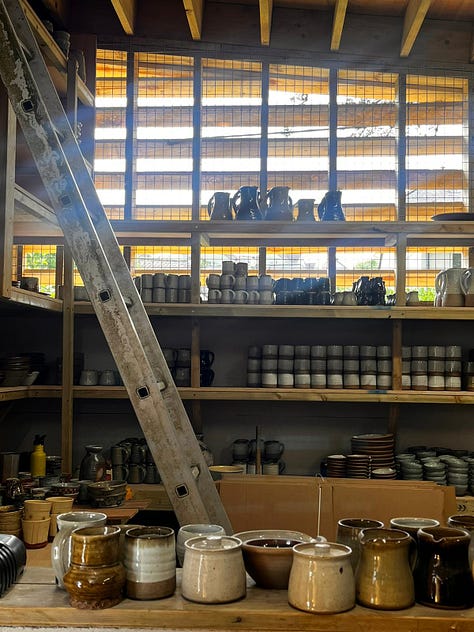
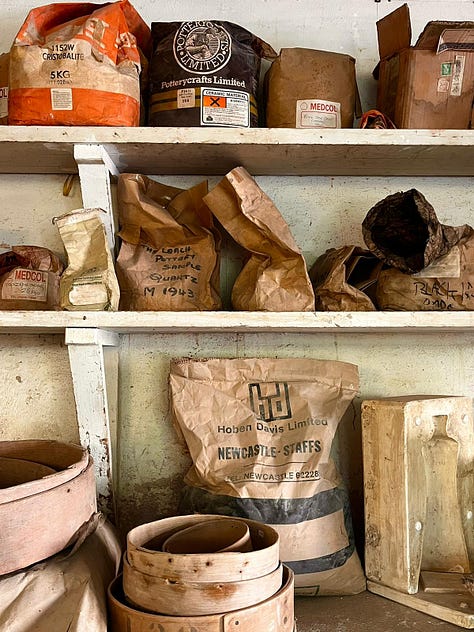
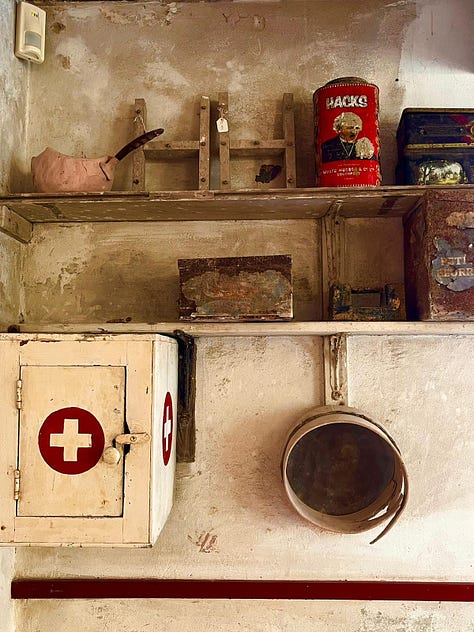
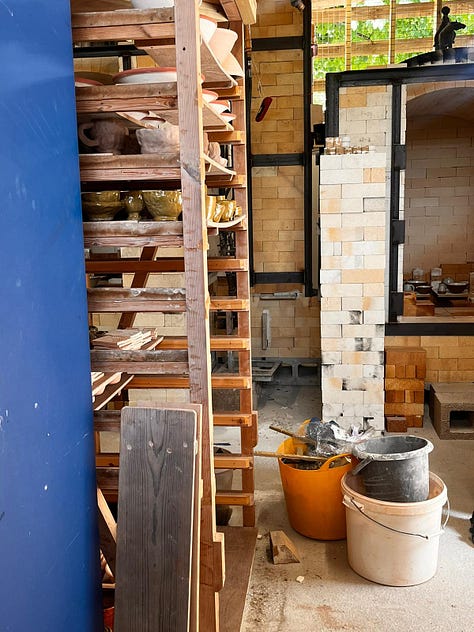
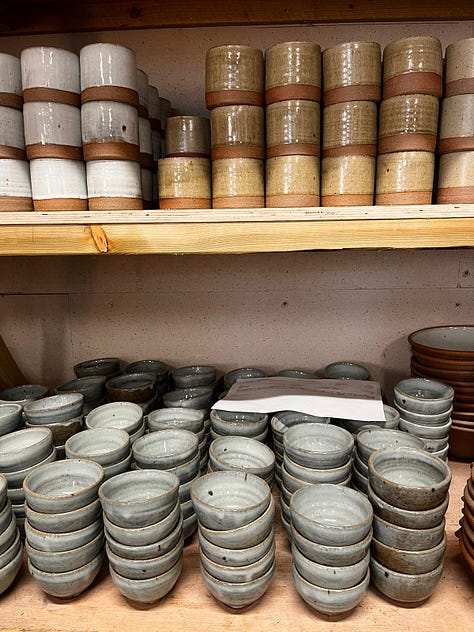
Leach spoke in his books about the ways that pottery skills could be passed on, and the importance of maintaining the tradition of craft pottery. He said in A Potter’s Book (1940), “One to three years is necessary for a training, and I find that that is best learned which is not taught but imbibed or picked up almost unconsciously in the natural course of co-operative work.” In The Potter’s Challenge (1975) he said “You should work long enough with clay and wheel so you are at home with them and your shapes are honest and serve their purpose.”
A major aim of Keith and Marj’s work refurbishing Capel Salem in Pwllheli is to follow in the Leach tradition, and have space to train a new generation of potters. So it was great to meet Labour’s Keir Starmer at Duchess China in Stoke this week, where Keith made the case for more creative education in schools and for good apprenticeships. Keir even stamped some bucket mugs with the word ‘Change’.
Leach said that potters want to make things “which are alive as they are alive, belonging to our day, inheriting the past and probing the future.” We hope a humble bucket mug with a single word achieves that!



